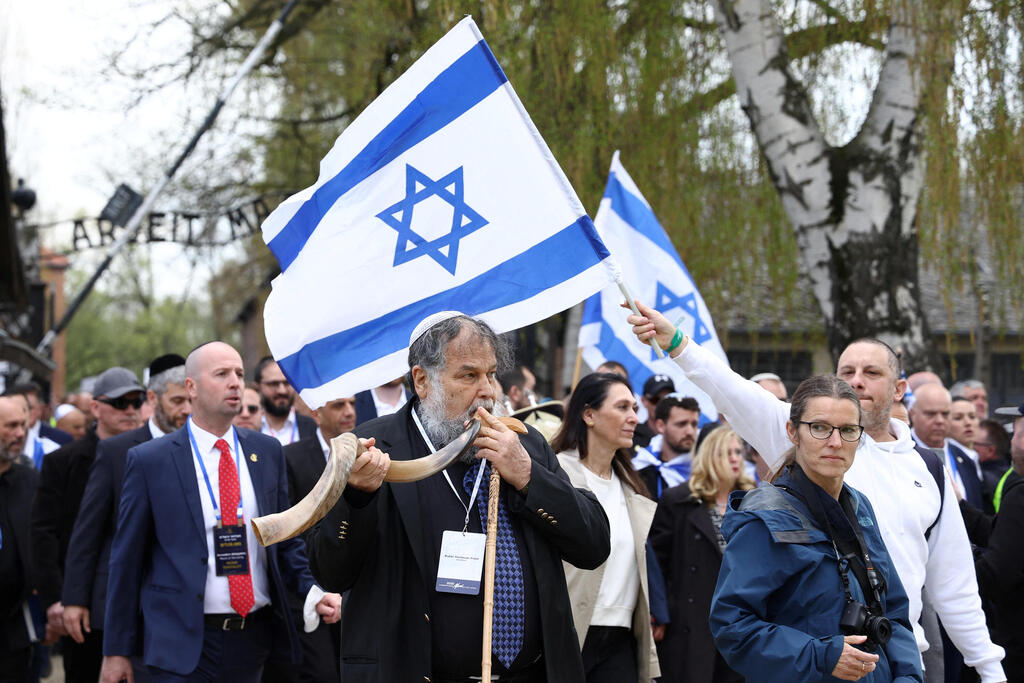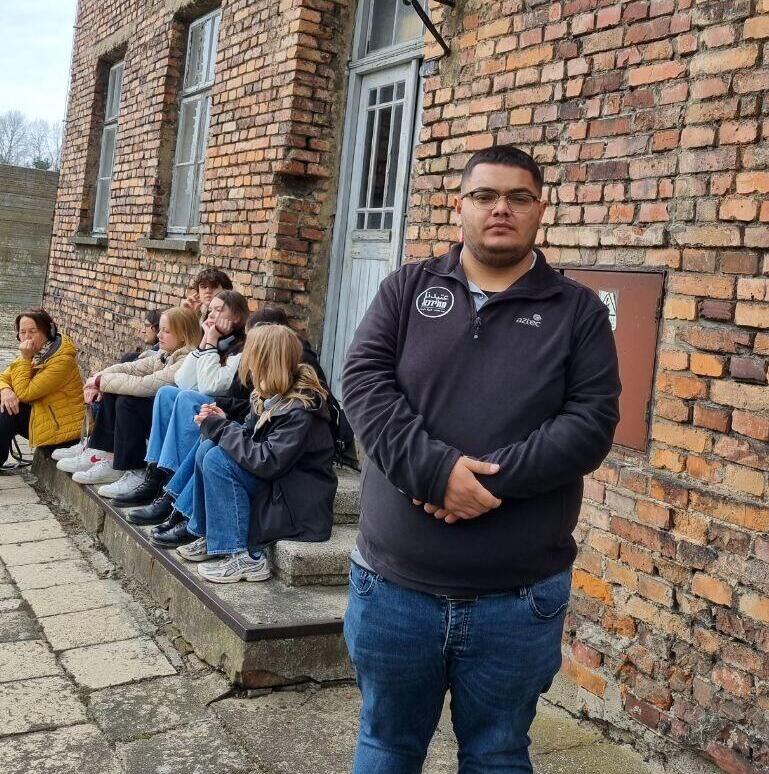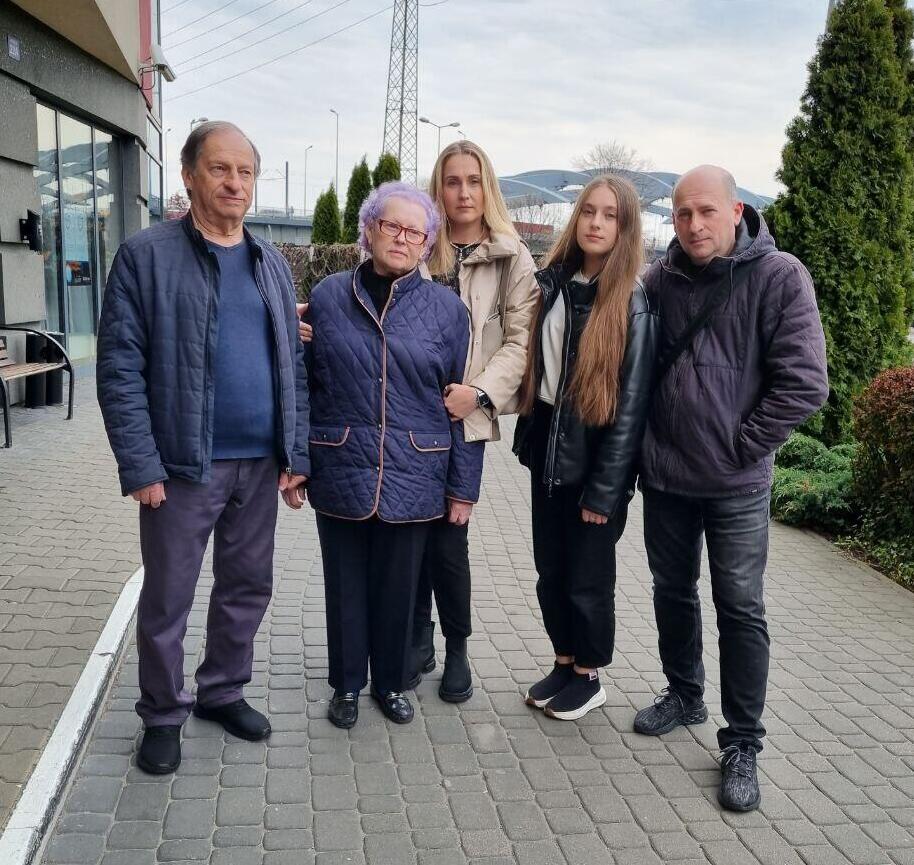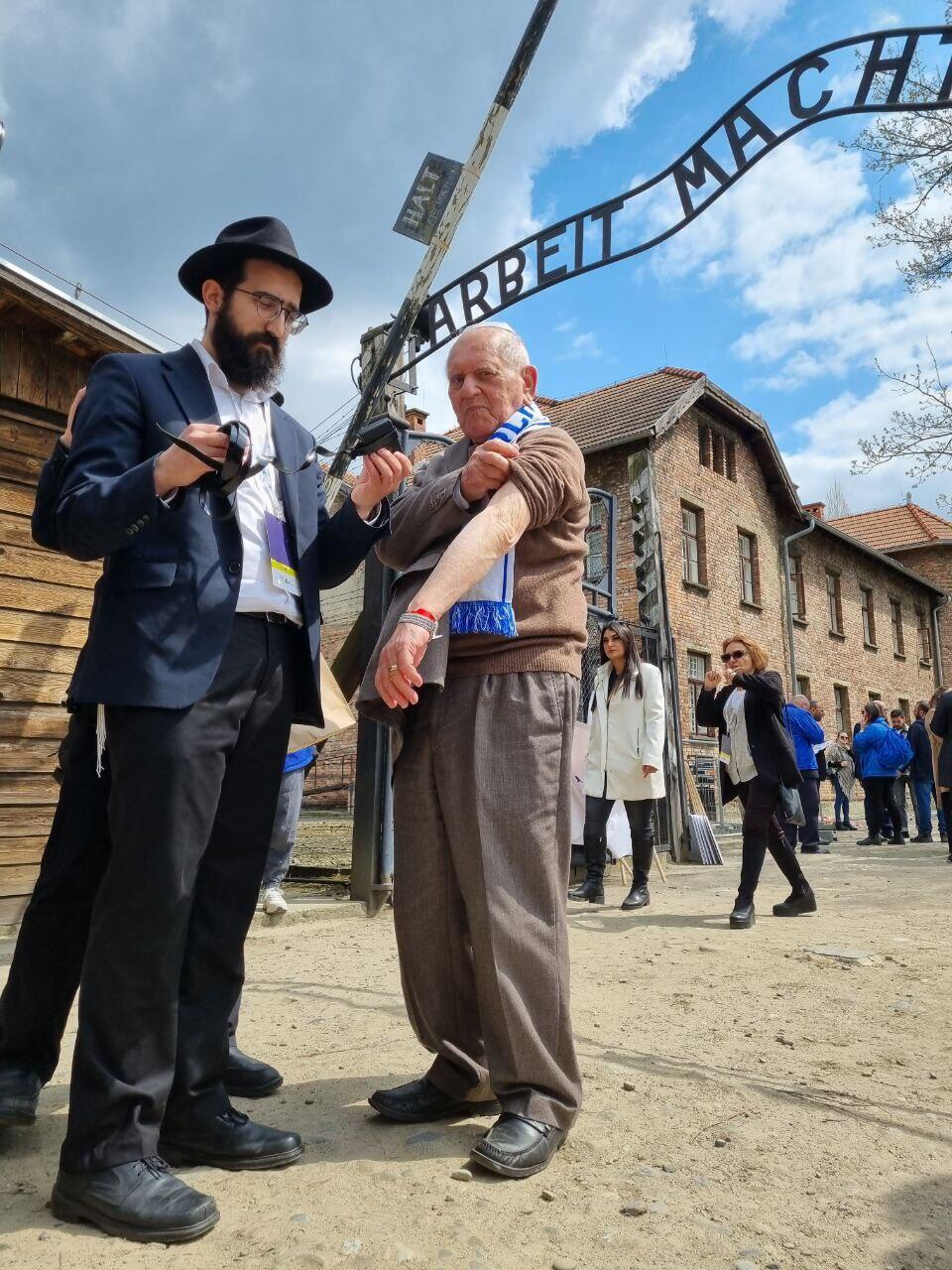Getting your Trinity Audio player ready...
Nearly 2,000 participants from 25 different countries took part in the March of the Living at the former Auschwitz-Birkenau concentration camp in Poland on Thursday.
Among the participants in the march were delegations from Israel, the United Arab Emirates, the United Kingdom, Belgium, Hungary, Austria, Germany, Holland, Lithuania, Poland, Greece, France, Canada, Ukraine, the United States, Argentina, Mexico and Uruguay.
7 View gallery
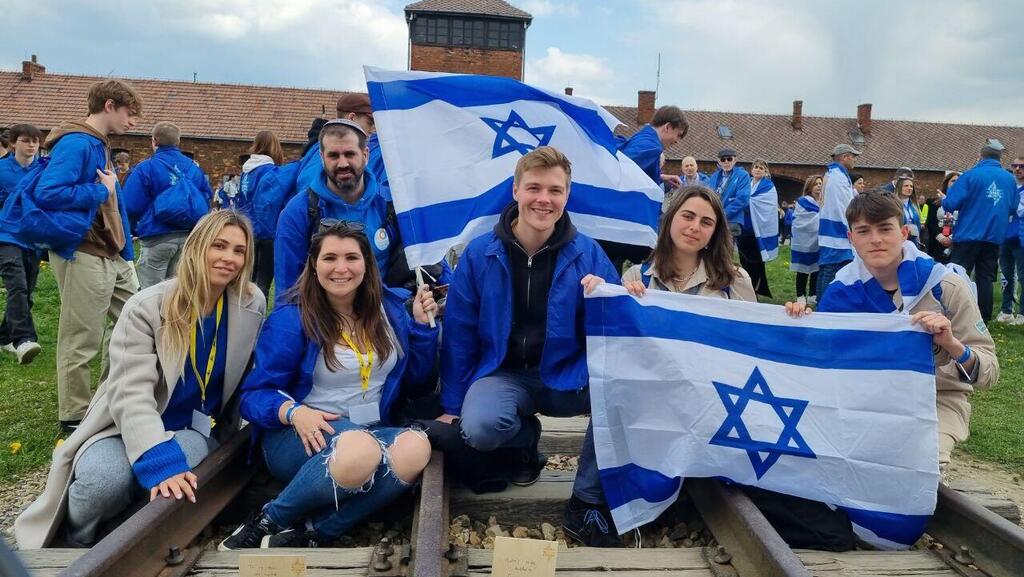

March of the Living at the former Auschwitz-Birkenau concentration camp
(Photo: Iris Lifshitz Kliger)
Only eight Holocaust survivors will take part in the march, which takes place annually on the occasion of the Holocaust Remembrance Day celebrated this year on Thursday, April 28.
Most of these survivors believe that this year could be the last year they are be able to attend the event.
7 View gallery
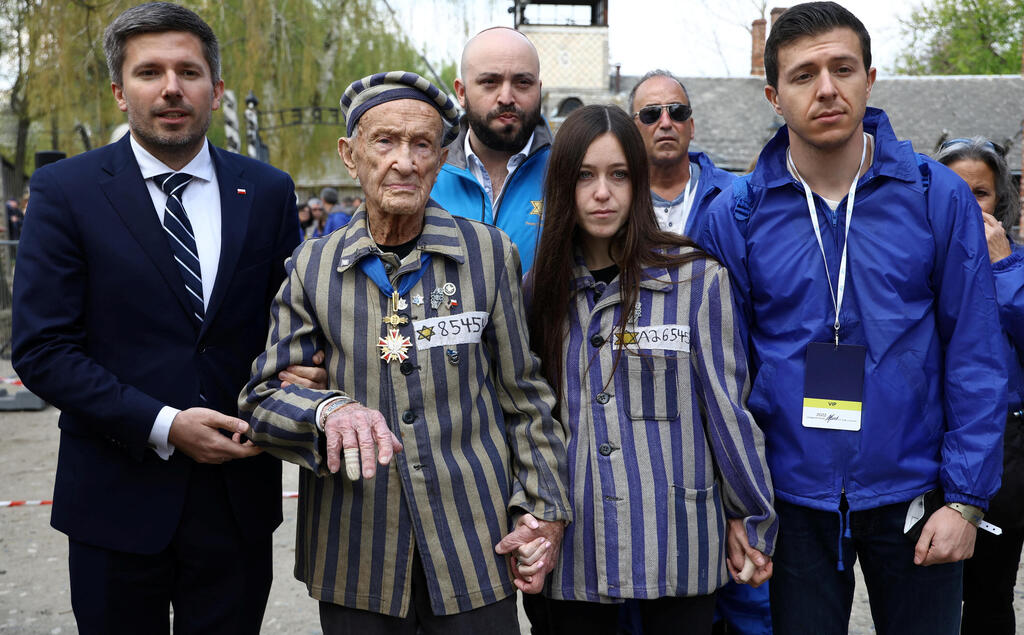

Holocaust survivor Edward Mossberg and his granddaughter in the March of the Living
(Photo: Reuters)
The theme of the march this year is focused on the importance of passing on the responsibility of teaching the Holocaust to future generations, and remembering those who endured the dark days of the Nazi oppression and the systematic annihilation of over 6 million Jewish victims.
This year also marks the first time a delegation of 100 Arab-Israeli teens attend the march.
Erez Eshel, one of the founders of the leadership programs through which the delegation was sent, said: "They'll march with Israeli flags, what's happening for the first time here in the march on the land of a concentration camp".
"What's happening here is history, it's beyond coexistence, Eshel said. "These are Arab teenagers who went through three days of preparation leading up to the trip. They received many threats over their participation, and nonetheless, continued their deeds."
7 View gallery
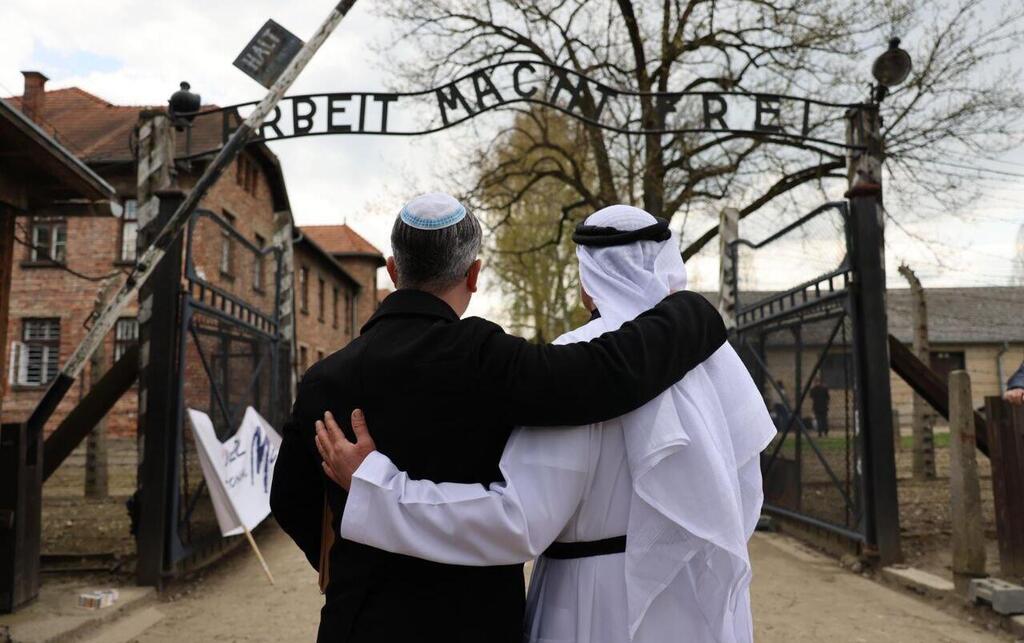

Eitan Naishlos (grandson of Holocaust survivor) and Ahmed Obeida Al Mansouri at the March of the Living
(Photo: Tali Naptov)
Ali Sofi, 22, an instructor in the Atidna youth movement for Arab and Jewish teens alike, said: "We came with 100 students from all over the country with a clear message: First of all - be a human being. To live in coexistence in a collective life as Arabs and Jews - includes coming to a place in which Jews were tortured and murdered with the purpose of taking out the last Jew on the face of the earth. I live in the State of Israel and I have to understand the suffering of the Jewish nation.
"I call on all the Arab Israelis to come here to this horrible concentration camp, to see up close what happened to the Jewish nation. I'm holding the Israeli flag and I will sing the HaTikva [Israel's national anthem]. We're Israelis by all means and we'll respect the HaTikva along with everyone. Before I got here, I received full support from my family and friends, I'm even more fulfilled knowing that I did something right."
Another group of special participants in this year's March of the Living is Ukrainian refugees - both Jews and non-Jews.
Yefim Podlafsky, who escaped with his family from the war in Ukraine shared that it's an honor to attend the march. "We, as Ukrainians and Jews, have found shelter and refuge in a different country, and can now march together in the March of the Living in order to say loudly and unanimously: We're alive and no regime will take our freedom from us."
Other attendees include delegations of victims of antisemitism, the Knesset, descendants of Nazi officers and supporters, the Jewish National Fund, the Israel Aerospace Industries, and the Jerusalem Municipality.
The two-mile walk from Auschwitz to Birkenau will end with the traditional ceremony at the remains of the Auschwitz-Birkenau crematoria, featuring former Israeli Chief Rabbi Yisrael Meir Lau, Israel’s military cantor Shai Abramson, Holocaust survivors and Israeli singer Harel Skaat.
Torches of remembrance will be lit in memory of the six million Jewish women, children and men who perished during World War II.


